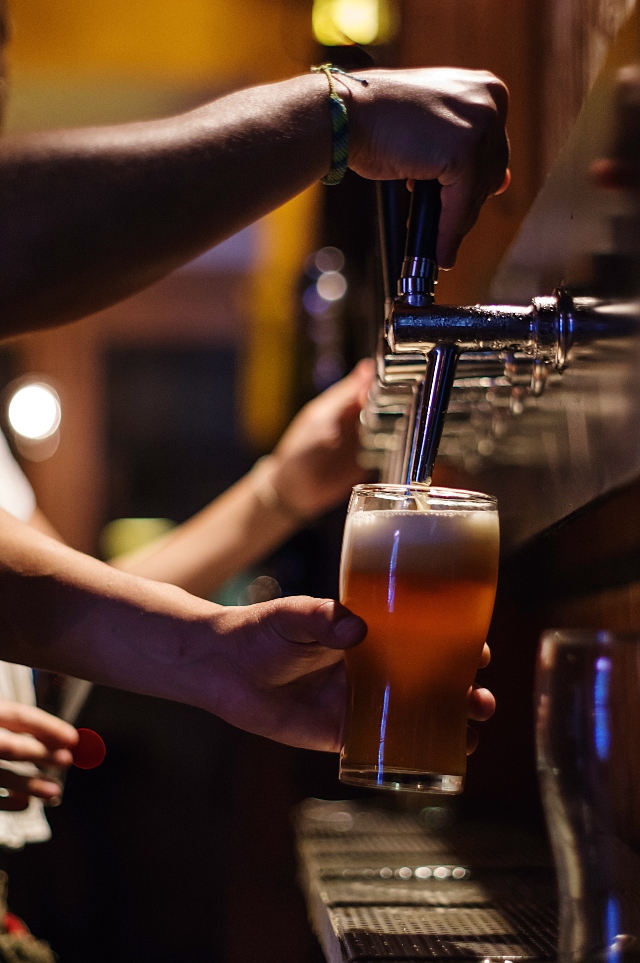
Body + Mind is reader-supported. We may earn an affiliate commission when you buy through some of the links on our site.
If you’re a college student, you could feel depressed for many reasons. Maybe you feel homesick, or perhaps the pandemic delayed plans. However, a third reason could lurk behind your blues — binge drinking.
Many students report participating in this behavior at least once or twice. However, the impact of alcohol on brain chemistry can lead to a vicious cycle of depression and addiction.
Drinking wreaks havoc on your brain’s neurotransmitter levels. When these fall out of whack, they cause your moods to become erratic. These emotions can then drive you to behave in ways you later regret, deepening your feelings of despair.
These effects happen because alcohol alters levels of the inhibitory neurotransmitter gamma-aminobutyric acid (GABA). In the short term, stimulating this chemical increases sedation and reduces feelings of anxiety much the way substances like valium and other benzodiazepines do. The problem is, when the effects wear off, the stress comes roaring back with a vengeance. Your body and brain cry out for relief — in the form of more alcohol.
That’s the physiological reason why binge-drinking can spur depression in college students. You might also grow distressed because you do something downright embarrassing while in your cups. One out of four college students reports drinking to the blackout point within the past year. If you can’t face your friends after a night of binge drinking, the isolation can spur you to take a drink to ease your embarrassment enough to mingle again.
It isn’t always easy to stop the binge drinking that spurs college depression. You have a host of pressures inviting you to drink, but the following eight tips can help you stay sober.
If your squad’s social life consists of keggers every night, you’re far more likely to overindulge. You don’t have to go on an unfriending spree, but try to develop more positive friendships. If you feel like the only one sober at a party, seek another designated driver to commiserate and bond over everyone else looking silly instead of indulging yourself.
More colleges are implementing sober dorms on campus. These facilities offer help and support for students struggling with addictions, but they can also be lifelines for those who don’t want to start the habit. Many such arrangements plan frequent substance-free activities to help you meet other non-drinking students.
You enjoy access to others with similar interests in college like you never will again in your adult life. Do you love to knit? Maybe you’re a hardcore gamer? You can probably find a club on campus dedicated to your favorite pastime.
You’re in school to learn more than an advanced version of the three Rs. You should also use this time to discover who you are as an individual. You have resources all around you, whether you want to pursue study abroad or become more fit.
A part-time job can give you more than beer money. It provides a way to earn extra cash and fill your time with a non-alcohol-related activity. Plus, you could make valuable contacts or, at the very least, pad your resume.
Sometimes, you can’t escape situations where alcohol flows freely — such as when your off-campus roommate throws a party. If you don’t want to sound like a prude to folks who won’t respect your decision to stay sober, tell them that you have an allergy. Most people are familiar with what peanut allergies can do, and they will understand. If they have seen you drink in the past, tell them you’re now taking medication that prohibits drinking — in the age of COVID-19, this white lie is more believable than ever.
Alcohol disrupts your neurotransmitters, but exercise floods your brain with serotonin and endorphins that make you feel elated naturally. If you find yourself craving a drink, try running away from the racing thought — lace up your tennies and go jogging. Creating a positive mental state by moving makes it less challenging to pass on the vino.
College is full of stressful experiences. Practice self-care to let yourself unwind and prevent getting so frazzled that you make unwise choices. Do yoga, invest in noise-canceling earbuds for meditation in noisy dorms, lose yourself in a novel instead of a textbook on a Friday evening. Sip some hot herbal tea instead of a toddy while you do.
Binge drinking can spur depression in college students by messing with neurotransmitters and causing embarrassing behavior. However, the tips above can help you enjoy a sober, mentally healthy educational experience.